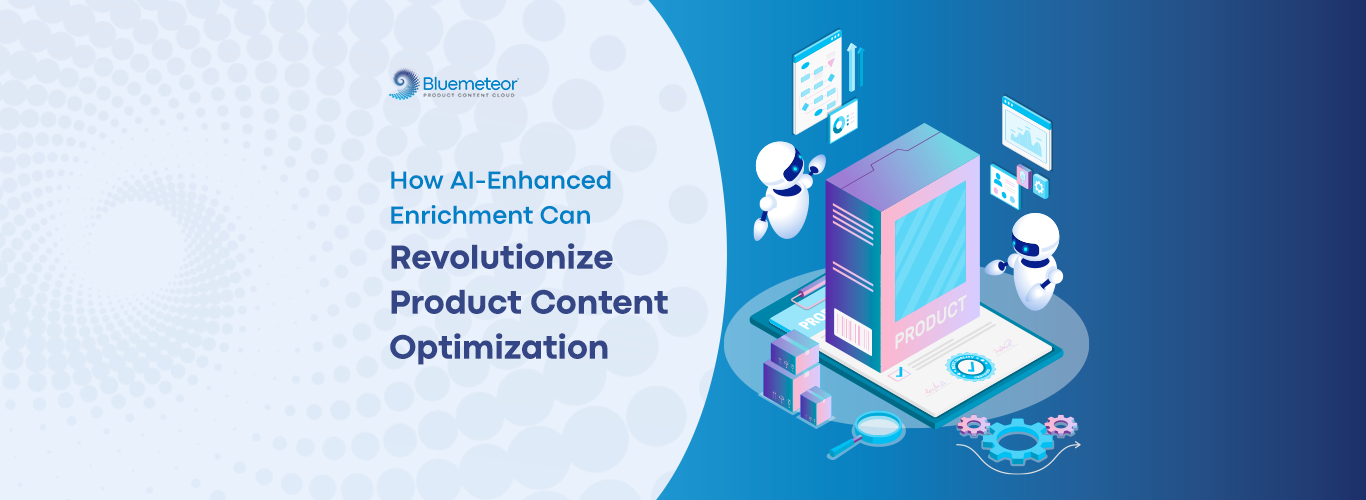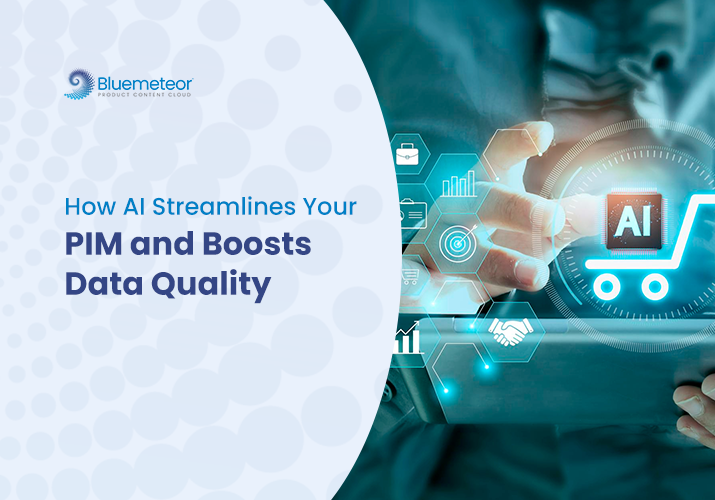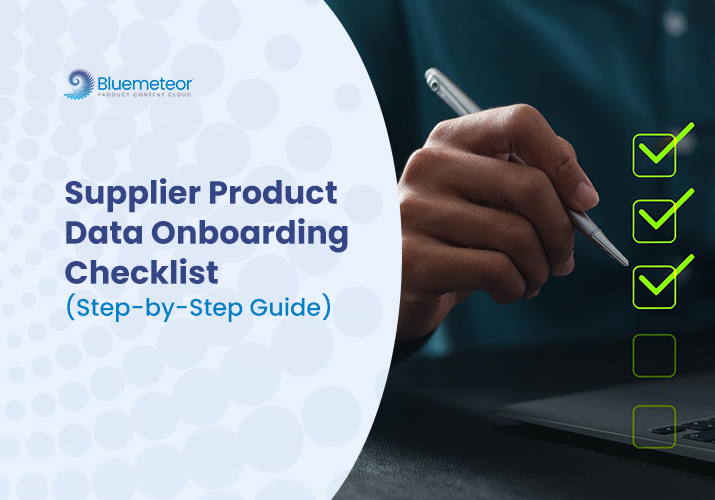How AI-Enhanced Enrichment Can Revolutionize Product Content Optimization

In the ever-evolving landscape of digital commerce, businesses are perpetually seeking innovative ways to captivate their audience, elevate user experience, and boost conversion rates. The core element pivotal to accomplishing these goals is the optimization of product content.
AI-powered tools are transforming product content enrichment, enabling manufacturers, distributors, and retailers to automate content updates, personalize product information, and maintain consistency across various platforms.
Understanding AI-Enhanced Product Content Enrichment
AI-driven product content enrichment is the process of enhancing product descriptions, images, and specifications using artificial intelligence. For industrial manufacturers or distributors, this means automating the generation of technical specifications, part numbers, and other complex data points. AI can extract relevant information from catalogs, product manuals, and websites, then enrich product listings for online platforms or internal systems.
For example, an industrial equipment distributor might use AI to auto-generate product descriptions and features based on a set of specifications provided by the manufacturer. This ensures the product pages are consistently updated across all sales channels, helping to keep them relevant.
The Role of Machine Learning in Content Optimization
Machine learning (ML) plays a crucial role in content optimization, especially in industries where product specifications and details are complex. In retail and distribution, ML models analyze customer interactions, sales data, and product performance to optimize content in real-time.
A distributor of electronic components used ML to analyze customer search behavior and adjust product descriptions accordingly. After implementing AI, the company saw a 15% increase in conversion rates as the descriptions became more aligned with what customers were actively searching for.
Benefits of AI-Powered Product Content Enrichment
AI-enhanced product content offers numerous benefits, particularly for industrial manufacturers, distributors, and retailers. These benefits include improved SEO, consistency across various platforms, and personalized content for different customer segments.
1. Streamlined Operations for Manufacturers
For manufacturers, especially those with extensive product lines, AI can automate the creation of product descriptions and specifications based on available data. This reduces human error and ensures consistency across all product materials.
2. Enhanced Product Visibility for Retailers
Retailers benefit from AI’s ability to ensure that product descriptions, images, and features are optimized for search engines. By tailoring content based on customer searches and preferences, AI improves product discoverability across platforms like Amazon, eBay, and brand websites.
3. Personalized Content for Distributors
Distributors who serve different market segments can use AI to personalize product descriptions based on regional or industry-specific preferences. AI can also adjust pricing and product features to suit local demand or regulatory requirements.
Example:
A global distributor of industrial tools used AI to enrich their online catalog by translating product descriptions and technical details for multiple regions. This allowed them to expand their customer base,
AI in Action – Key AI Tools for Product Content Optimization
Here’s a table highlighting AI tools that are specifically useful for industrial manufacturers, distributors, and retailers in enhancing their product content:
| AI Tool | Functionality | Benefit | Example Use Case |
|---|---|---|---|
| Natural Language Processing (NLP) | Analyzes product descriptions, technical specs, and features. | Helps manufacturers and distributors generate accurate, SEO-friendly content. | An industrial equipment manufacturer uses NLP to automatically create product descriptions for a new product line. |
| Predictive Analytics | Forecasts demand and customer behavior. | Ensures content remains relevant by anticipating shifts in customer interests. | A retailer uses predictive analytics to adjust product descriptions based on seasonal trends, ensuring high relevance. |
| Image Recognition AI | Enhances product images for visual consistency and quality. | Improves product appeal and ensures consistency across platforms. | A retailer enhances product photos automatically, ensuring all images align with brand guidelines. |
| Sentiment Analysis | Analyzes customer reviews and feedback to refine content. | Optimizes product content based on real-world customer sentiment. | A distributor analyzes reviews to adjust product content to highlight features valued by customers. |
| Machine Learning Models | Learns from user behavior and adjusts content dynamically. | Continuously improves content performance and personalization. | A B2B distributor uses ML to optimize descriptions, ensuring they align with customer queries and behavior on the platform. |
AI-Driven Product Content for Retailers: Enhancing Customer Experience
Retailers can use AI to enhance the shopping experience by improving how product content is displayed. Beyond static descriptions, AI can dynamically adjust content based on user preferences, location, and even previous browsing behavior.
AI can be particularly valuable in product recommendations. By analyzing data from user interactions, AI can suggest complementary products and improve cross-selling and up-selling opportunities. This personalized shopping experience not only improves conversion rates but also enhances customer loyalty.
Example:
An online home appliance retailer applied AI to optimize product recommendations. By analyzing past purchasing data and user browsing habits, they were able to recommend complementary products like cleaning accessories alongside vacuum cleaner sales, which increased their average order value by 25%.
Checklist for Implementing AI in Product Content Optimization
Use the following checklist to guide your implementation of AI for product content optimization:
Pre-Implementation:
- Review and categorize existing product data (e.g., technical specifications for manufacturers or product descriptions for retailers).
- Choose AI tools based on industry needs (e.g., predictive analytics for distributors, NLP for manufacturers).
- Ensure product content is accurate and ready for integration with AI tools.
During Implementation:
- Integrate AI into the content management system (CMS) for automated updates.
- Train AI algorithms with existing product content and data.
- Ensure that AI can handle complex data types, such as part numbers or technical jargon for industrial products.
Post-Implementation:
- Measure performance metrics, including traffic, conversions, and customer engagement.
- Adjust content strategies based on ongoing AI insights.
- Continuously update AI models with new data, including customer feedback and seasonal changes.
The Future of AI-Driven Product Content Optimization
Looking ahead, AI will continue to play an essential role in optimizing product content. Advanced technologies like augmented reality (AR) and 3D product visualizations will revolutionize how customers interact with products, especially in the industrial and retail sectors.
AI will further enhance personalization, driving hyper-targeted product content based on individual customer preferences and behaviors. This will enable manufacturers, distributors, and retailers to stay ahead of the curve and continue to deliver exceptional customer experiences.
Conclusion: Embrace AI for the Future
AI-powered product content optimization is not just an opportunity—it’s a necessity for industrial manufacturers, distributors, and retailers. By automating content updates, personalizing product information, and ensuring consistency across channels, AI enhances product visibility, engagement, and sales.
As technology continues to evolve, businesses that leverage AI will be better equipped to adapt to changing market demands, deliver superior customer experiences, and remain competitive in a fast-paced digital world.
Bluemeteor’s Product Content Cloud offers businesses a hands-on experience of how AI can streamline product content optimization. By utilizing Bluemeteor’s advanced platform, manufacturers, distributors, and retailers can see firsthand how the Product Content Cloud automates content enrichment, ensures consistency across channels, and boosts SEO performance—all in real-time.
Book Your Demo Now
Related Articles
Recent Post
Categories




